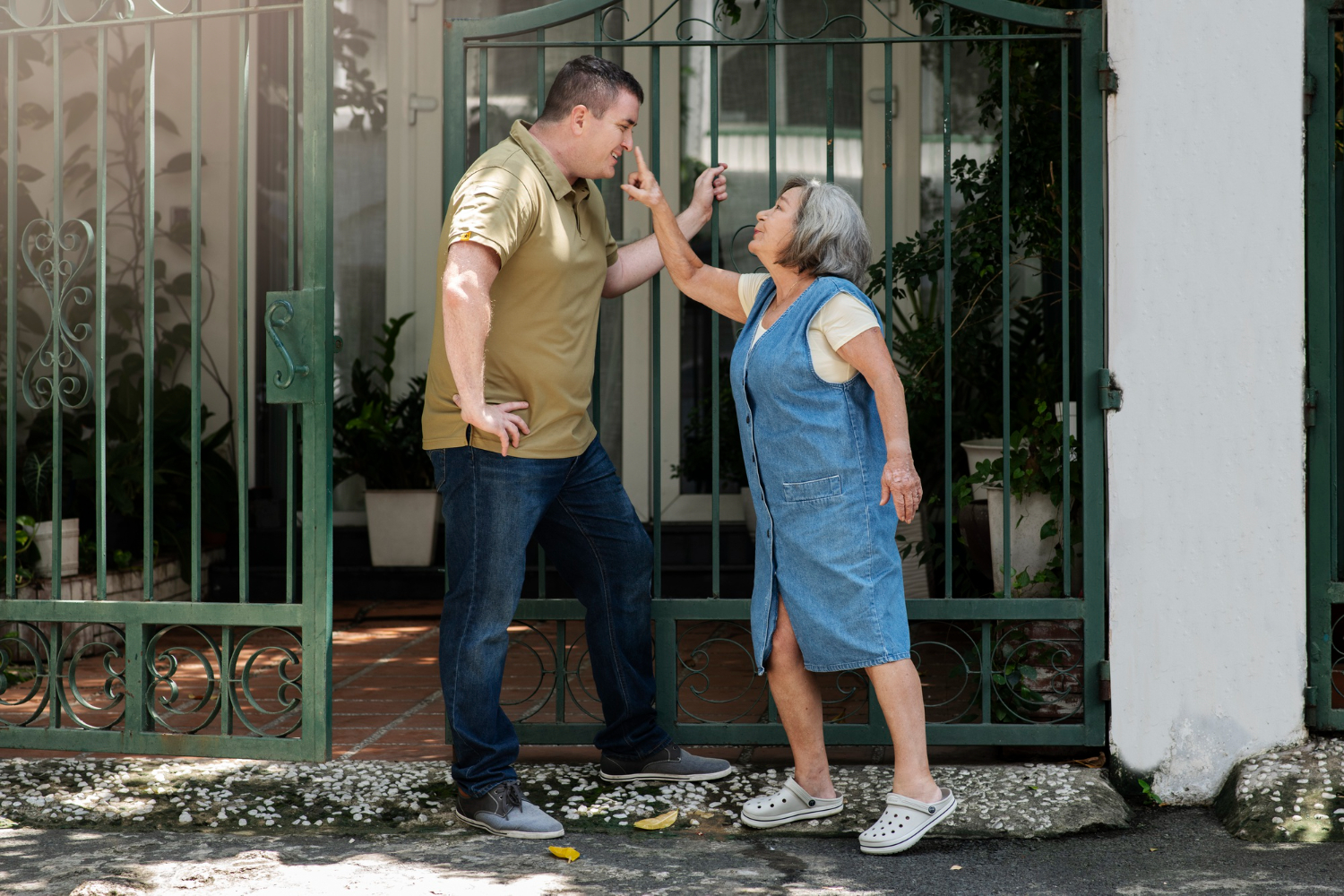As you find yourself scouring the web for your first home, you may have noticed that HOAs are growing more and more common in the housing market every year. If you are not particularly familiar with Homeowners Associations, you might perform a quick search only to find a list of “most common” search terms on Google. Common searches like “Why is an HOA bad?” or “Can you refuse to sign an HOA?”
Despite the nefarious implications that come with these more common inquiries, the fact of the matter is that HOAs were specifically created to protect the monetary value of your investment. When residential neighborhoods fall into disrepair, your home will begin to lose its value even if the deteriorating property in question belongs to someone else. It would truly be a shame for your home to lose its resale value, especially after having spent years working, saving, and building your credit so you can begin the process of buying a new home in the first place.
We want to do everything in our power to protect your investments. We remember how intimidating it can be to research such topics on your own, especially when you’ve already done so much work to save and build and grow your net worth as a homeowner.
You Are an Active Member of the HOA Community
What exactly does it mean to be an “active member” of your local HOA? Surely if you purchase a property of your own, that means you can go about your business and never talk to your neighbors, right?
As it happens, that is not how things work.
If you choose to live in a community run and managed by a Homeowners Association, you are legally required to uphold the standards you agreed to by joining that community. Your neighbors are encouraged to watch out for each other, which includes reporting any deviant or suspicious activity that occurs within the neighborhood. In addition to the ever-popular Neighborhood Watch, you will also have the option of volunteering to assist your HOA’s Board of Directors, or you may opt to run for the Board yourself someday.
However, not everyone wants to play an active role in the well-being of the neighborhood they call “home.” Some prefer not to be bothered by their neighbors, and that is perfectly fine. But, if you are interested in living in a visibly safe, clean, and close-knit community, an HOA might be precisely what you are looking for.
State Your Expectations
We get it. The clock is ticking, and you want to place a bid on that dream home before anyone else can come and claim it. When you make an offer, please be sure to state your expectations clearly. Do not assume you are on the same page with your realtor.
If you have not had a chance to read the community guidelines for the property in question, we highly recommend that you get it in writing. This is the best way to protect your investments, and you can do this when you submit your bid by stating that you “have not yet reviewed all of the HOA rules, and that you require a full copy of the CC&R to be delivered within 48 hours.” This alone will save you so much heartache if your bid is accepted and you need time to review the details in full before officially closing the deal.
Every HOA Community is Different
This often goes without saying, but you would be surprised at how often this is overlooked in the homebuying process. Even if you have previously lived in an HOA community, we implore you to remember that the rules may be different in every community.
Ask your real estate agent for a full copy of the legal documents associated with the property, also known as CC&Rs, which is a fancy acronym for Covenants, Conditions, & Restrictions. The home itself will, of course, be yours to call home – but try to think of it as “yours*” with a huge emphasis on the asterisk. The asterisk, in this case, represents the rules and community guidelines of the HOA.
Read Those CC&Rs
Say your spouse wants to paint the front door bright red. Do the CC&Rs clearly state that this color will be permitted in the community? Perhaps you want to install a basketball hoop above the garage? Add a pool? Maybe even rip out the front lawn and turn it into an edible garden! Well, this is where we remind you that most HOAs do not permit external alterations of neighborhood property. If you wish to get approval for such things, you must get written approval from your HOA’s Board of Directors.
Though this may sound a tad excessive, we advise you to think of it like this: It is the HOA’s responsibility to protect the value of their members’ investments by checking in to make sure that everyone is abiding by the rules they consented to when they joined the HOA in the first place. When your neighbor allows their home to fall into disrepair, it will inevitably cause the monetary value of the neighborhood to drop. Even if you took immaculate care of your home from the start, your investment would still suffer, and there would be nothing you could do to fix this.
HOAs were created to protect the investments of the community as a whole, and as such, you will sometimes find reminders in your inbox if maintenance may be required. It is your responsibility, as the homeowner, to follow up on these reminders as well.
Review Rental Restrictions
Consider how long you will want to live in this house. Are you looking for your dream home? Hoping to sublet one of the rooms? Well, before you close the deal with your realtor, we advise you yet again to read your chosen property’s CC&Rs in full to ensure that the HOA fully aligns with the hopes you have for the future at that community.
Many HOAs do not allow subletters and third-party rentals. There are many more that specifically prohibit certain breeds of dog, number of residents, volume after dark – and it can be different in every community. It is your responsibility as the homeowner to abide by these rules, and to correct any violations if they are reported to the HOA.
One example would be a request from the HOA to repaint your house within 30 days. If you were to find this reminder in your inbox, do not run down to Lowe’s in the hopes of picking up a can of paint that looks “close enough” to the color of your home. Do not assume anything. Instead, send a sample to the HOA for approval so they will know that you care enough to check in with your community before taking action. Doing this will help you to build a rapport with your fellow members, while preventing your home from being heavily fined for violating the rules you agreed to when you joined the HOA community.
We seriously cannot express to you enough the importance of reading and understanding all of the CC&Rs before joining an HOA. Do not overlook this step.
Membership Fees
In addition to the cost of the house, many new homebuyers seem to forget that the HOA dues are not included in the final price of the home you are applying for. Find out the cost of your HOA membership. The HOA cost will often be added to the total cost of your property after the sale closes.
It’s not possible to get out of this once you place your bid on the property you’ve selected. Learn as much as you can about your HOA. Some memberships are due monthly, some quarterly, and some semi-annually like car insurance. If the fees raise the cost of your home significantly, you could risk having your mortgage disqualified even after you were already guaranteed approval for the cost of the property itself.
Consequences of Rule Violations
In addition to the membership fees, we would also recommend that you plan ahead if a violation were to occur on your property. Learn the consequences of HOA rule violations and plan ahead to avoid them. If you do not respect the rules of the community as stated in your CC&Rs, you will very likely be fined by the HOA until you remedy the situation, which, if ignored, can lead to the HOA putting a lien on your property – and nobody wants that to happen.
In Conclusion
When you purchase a home of this kind, you are not simply buying a house. You are consenting to playing an active role in that community. Most homebuyers with poor experiences have admitted to being unaware of restrictions that were clearly stated in the CC&Rs, or they disregarded the rules altogether. If you are interested in living in a visibly safe, clean, and close-knit community, an HOA might be precisely what you are looking for.
We want to do everything in our power to protect your investments while ensuring the best possible quality of life for the people that make up your community. Not everyone cares about having access to well-kept community parks, pools, clubhouses, and more. HOAs were created to protect your investments, while ensuring that everyone in your neighborhood feels safe and secure in and outside of their personal property.
Be honest. Be clear. Read those CC&Rs, and don’t be afraid to ask questions! We want the HOA you select to be the best possible fit for you and the future you have hoped for.




